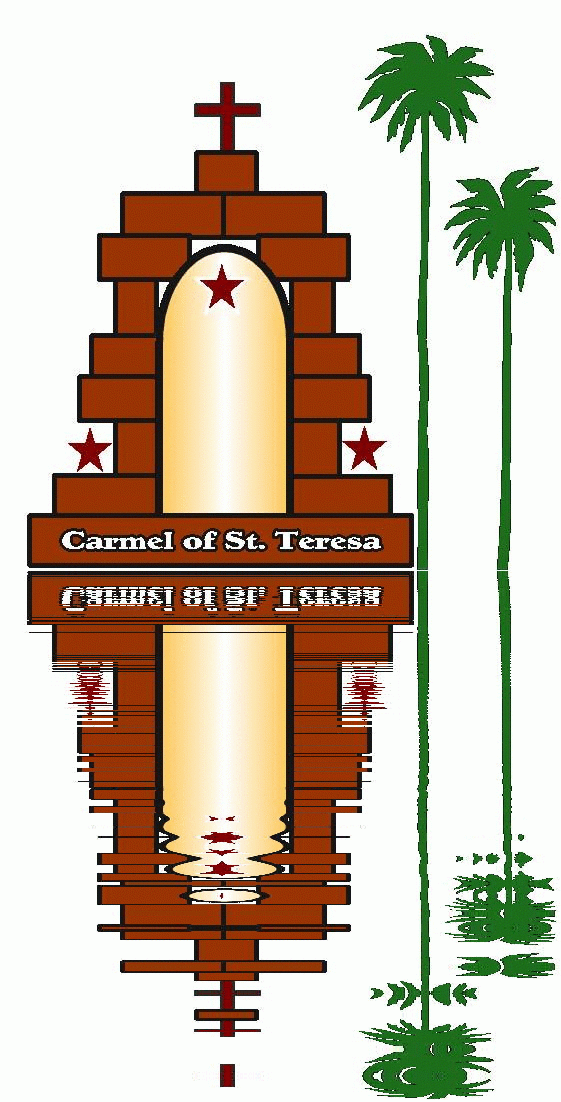top of page





1/12
"Laudem Gloriae"
For the Praise of His Glory
On July 18th, 1880 Marie Elisabeth Josephine Catez was born to Joseph Catez and Marie Rolland in the military camp of Avor (near Bourges), France. Elisabeth, called Sabeth by those close to her, was born into a Military family, who moved a couple times until arriving in Dijon, where her sister Marguerite (known as Guite) was born in 1883 and where in 1887 her father, whom she dearly loved, passed away. At 8 years old Elisabeth started attending the Conservatory of Dijon and was trained on the piano, becoming an acclaimed pianist by the local newspapers at a young age. But also, at a young age she was already experiencing the Divine Indwelling which became an essential part of her Spirituality and is ever present in her writings. Elisabeth was known for her lively personality and quick-tempered character, which even as a child she made an effort to correct for her love of God and the sake of others.
On April 19, 1891 she received her First Communion of which she later wrote “On that day we gave ourselves completely to each other.” And at nearly 14 years old, Elisabeth during thanksgiving at the end of Mass one day felt impelled to “choose Him as my only spouse” and united herself to Jesus by a vow of virginity. A few weeks later her desire to give herself totally to God was solidified in her soul by one word “Carmel”. Yet, it would still be many years before she could enter. Her prayer life continued to deepen and she lived the Will of God that was right before her. Her mother was against the idea of her entering Carmel and would not give her consent but later gave her permission under the condition that she wait until she turned 21 years old.
During this time Elisabeth lived enjoying her family and friend’s company, parties and trips but all the while persevering in her decision to enter Carmel. Even before entering Carmel, Elisabeth lived a contemplative prayer life and understood the reality of all people being called to practice the interior life, of which she later encouraged many laities to practice especially in silence since “… in silence and in solitude one lives there alone with God Alone.”And finally, on August 2, 1901 she entered the Carmel of Dijon and received the habit that same year on the 8th of December, receiving the name Elisabeth of the Trinity, which she loved for its beauty and meaning: Elisabeth meaning “House of God” and the title of the Trinity which was her “Three” and her “All”.
Her time in Carmel was characterized by great joy and suffering; but she wrote in a letter, “In Carmel one meets many sacrifices… but they are so sweet when the heart is wholly held by love.” On January 11, 1903 Elisabeth made her solemn profession. She continued to advance in Union with “The Father, the Son and the Holy Spirit” which brought the inspiration to offer herself to God as a “Praise of Glory”. And on November 21st, 1904 she wrote her beautiful prayer to the Trinity, "O my God, Trinity, whom I adore".
The following year Elisabeth’s health started declining, she had Addison’s disease (an excruciating illness and incurable in her time) which she bore with loving surrender for the Crucified. She desired to be consumed by God’s love. Elisabeth anticipated her end and even though she greatly suffered she thought only of her love for God and her desire to bring others to Him and wrote, “In heaven it seems to me, my mission will be to draw souls into interior recollection to go out from themselves in order to adhere to God by a very simple, wholly loving movement; and to maintain them in that great inner silence which allows God to imprint Himself on them and to transform them into Himself.”
On November 9th, 1906 Elisabeth started her mission in Heaven. From even before her death many saw in her saintly attributes and shortly after death many prayed for her intercession. Elisabeth was Beatified on November 25th, 1984 by Pope Saint John Paul II and canonized by Pope Francis on October 16, 2016- the Year of Mercy.
bottom of page



